FEBRUARY 10, 2020 BY FELLOW DYING INMATE
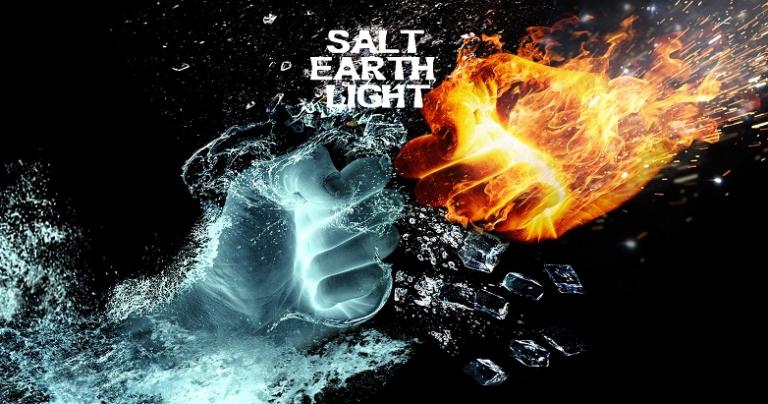
Evangelists were elites representing two percent of the total population who could read and write—because their context was far removed from the Galilee, sometimes they are at a loss to understand the sayings and stories of Jesus.
Evangelists, pray for us! Being a disciple of Jesus has never been easy. Just as we should grapple with Jesus and his sayings, so too the Evangelists did. These sacred authors did their very best to honestly present the words of the Master. They grappled to understand him. This was not always successful and the Gospels present us with many opportunities to see their failures on display.
Evangelists and Salt of the Earth-Oven
My previous post, 1 Comment, caused a stir in some. Just a glance over the Fathers of the Church commenting on Matthew 5:13, one can see why. From the earliest times, followers of Christ have recontextualized his metaphor of salt to relate to either seasoning or preservative or a mixture of both. Americans head-nod in spurious familiarity. But did Jesus, Galilean village peasant, artisan, day laborer, and folk healer, understand salt in such a way?
By the way, what I was presenting there is not the only meaning “salt” has, admittedly. I was also not presenting the final word on what “salt” means or meant. I am presenting rather the first word on what “salt” means for the Gospels. Therefore, I was presenting a culturally plausible meaning of “salt” in Jesus’ peasant-village Galilean environs.
Stage Three: the Evangelists
The Catholic Church accepts that the Gospels evolved over three stages of development. According to Vatican II’s Dogmatic Constitution on Divine Revelation, or Dei Verbum (§19), the Pontifical Biblical Commission’s, “Instruction on the Historical Truth of the Gospels” (§6-9), and the Universal Catechism (no. 126), the Gospels emerged through this three-stage process—
- Stage One—These are the original words and deeds of Jesus.
- Stage Two—The oral proclamation of the Apostles and disciples (including catechesis, narratives, testimonies, hymns, doxologies, and prayers).
- Stage Three—This would be the Gospel documents themselves.
Understanding the Gospels, as well as Gospel statements like “Salt of the Earth,” means understanding these these stages.
Whenever you move language, you necessarily change the meaning. Whether it be words like salt, earth, or light, or even sentences like “You are the salt of the earth,” move them in time and space and you necessarily change their meaning. Be careful that you don’t fall for the idea that you or the Church Fathers or even the Four Evangelists have “Immaculate Perception” when it comes to Jesus and what he said.
Salt Way Before the Evangelists: the 20s in Peasant Galilee
Think of what happened when Jesus originally said “You are the salt of the earth.” Consider what would necessarily happen to such a saying once it “hit the road.” Do that, and you will fast realize that we have a huge context problem when we explore this past Sunday’s Gospel.
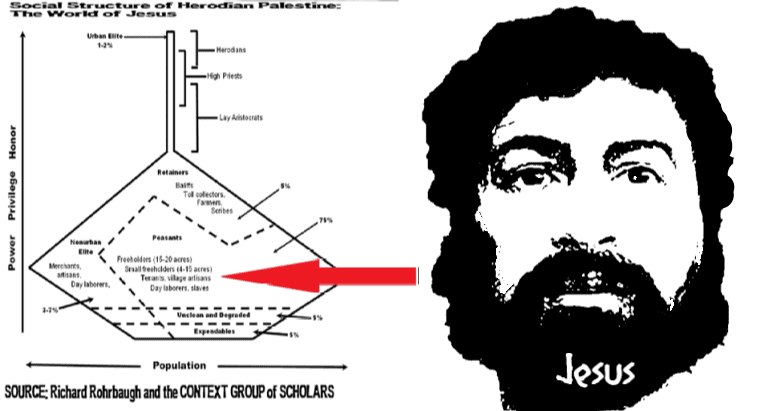
Imagine the prepaschal Jesus (the historical Jesus before his death and resurrection) in the time of his earthly ministry. Picture him in Galilean villages around 29 CE, healing fellow peasants and telling parables. The stories he told there would have a certain context, that of peasant villagers and their struggles. The symbols he uses are a part of the social system there. The salt, earthen ovens, and light he speaks of relates to their familiar use in that setting.
Salt of the Apostolic Kerygma: 30s through 65 CE
Now imagine a later time, still somewhat before the Evangelists. Following his death, Jesus appears risen to his closest followers, and he soon becomes understood as Cosmic Lord and Messiah, soon to return to bring about Theocracy in Israel. These people talk about the Risen Lord Jesus in this way. When they remember his salt, earth, and light, they do so inescapably interpreting and recontextualizing these metaphors by this new context.
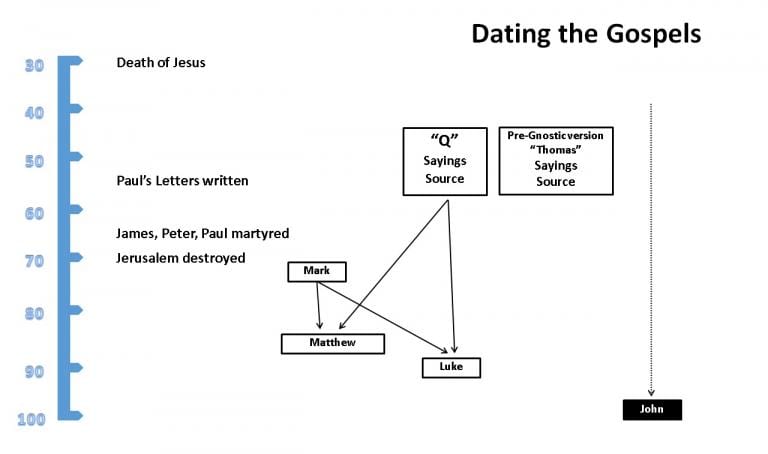
The Evangelists: Salt after 65 CE
Entering the latter half of the first century, the saying “salt of the earth” spreads even further out, percolating all over the Mediterranean. The socio-economics change. Ovens change. The predominant use of salt changes.
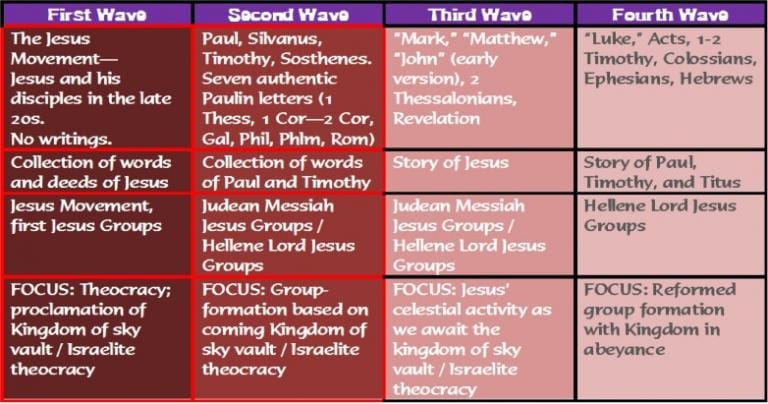
Everyone of these new people who repeats “salt of the earth,” either from hearsay or from memory, does so in new and different contexts. As this expands throughout wider geography and time, it diversifies, with contexts growing exponentially. The result was Jesus’ saying about “salt” and “earth” changed in form and meaning.

Uncrossable Social Divide Between Jesus and Evangelists
With respect to William Hemsworth, it is most definitely NOT certain that Jesus had any symbolisms of salt, light, and ovens beyond what is plausible to Galilean peasantry. Making this passage into an allusion to covenants and the Davidic covenant in particular is allegory-gone-wild typical of the Fathers East, West, and Syriac. “Salt of the earth” much more down to earth, so to speak.
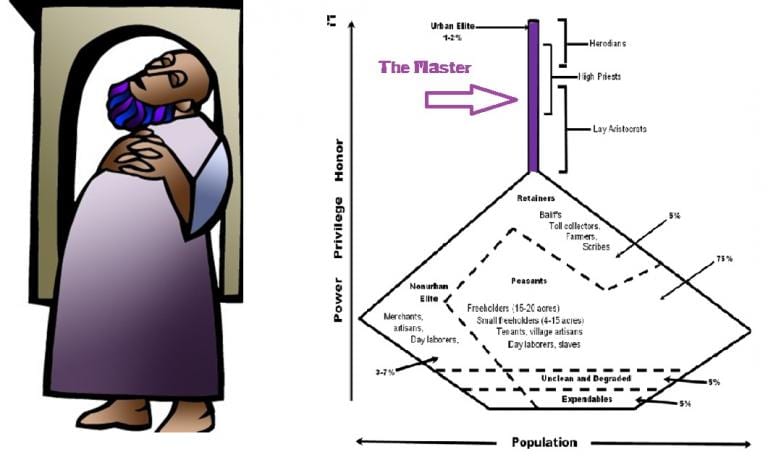
As we have covered before, by the time we enter the ELITE world of writers such as “Matthew” and “Luke,” we have crossed a divide that all ancients imagined uncrossable. We read the Gospels about a Galilean peasant turned folk healer who lived in a nonliterate, oral agrarian world of peasants and landless village day laborers. But who is writing it? Elite people, born and bred as elites, educated to be sophisticated writers skilled in rhetoric and the art of storytelling about Mediterranean great ones.
From the late 20s, Jesus’ own stories and pithy sayings were remembered entirely orally. But the inspired (not God-dictated!) records we have of Jesus are all WRITTEN, from the latter half of the first century. Think about what happened when the Jesus traditions, orally recited, got replaced by reading written records? By that time, we are FAR AWAY in social distance from the Galilee!
The distance between Stage One of Gospel Formation and Stage Three is a vast abyss, a chasm like that between Lazarus and the Greedy Man. Therefore we see many instances where the Evangelists simply do not understand Jesus. Look at how they turn the parables into allegories! Consider what happened with the Parable of the Tenants!
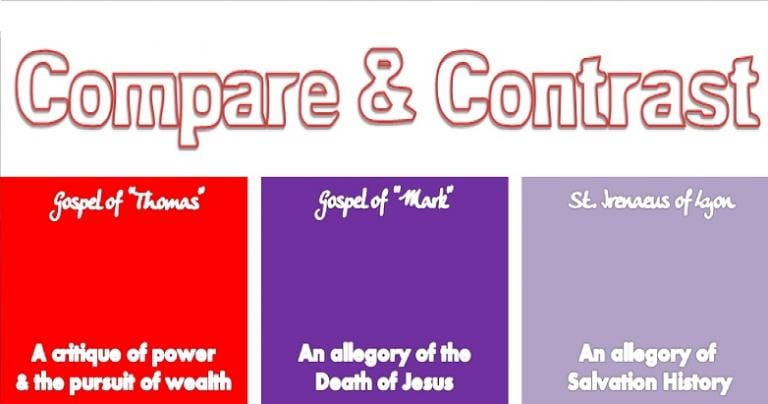
The Evangelists Misunderstand Jesus’ Mats and Roofs
Look at how “Matthew” and “Luke” turn a Galilean peasant mat into a bed.
Mark 2:3-4—
And they came, bringing to him a paralytic carried by four men. And when they could not get near him because of the crowd, they removed the roof above him; and when they had made an opening, they let down the pallet on which the paralytic lay.
Matthew 9:2—
And behold, they brought to him a paralytic, lying on his bed; and when Jesus saw their faith he said to the paralytic, “Take heart, my son; your sins are forgiven.”
Luke 5:18-19—
And behold, men were bringing on a bed a man who was paralyzed, and they sought to bring him in and lay him before Jesus; but finding no way to bring him in, because of the crowd, they went up on the roof and let him down with his bed through the tiles into the midst before Jesus.
That’s because both “Matthew” and “Luke” come from a world of beds. But more besides, “Luke” comes from a world of tiled roofs, so he changes the story accordingly.
Evangelists Sometimes Misunderstand the Parables
Watch how “Luke” admits that he doesn’t always get Jesus, or more, even admits that sometimes he doesn’t have a CLUE as to what Jesus means. See how he faithfully reproduces the Parable of the Humiliated Master (Luke 16:1-13)? He gives four different punchlines to it (Luke 16:8b; 9; 10-12; 13), no doubt all of which he learned from earlier preachers, all different attempts to explain the parable, and NONE of which work. We have to remember that before the elite authors got hold of these stories into their Gospels, these stories were Good News for peasants.
Evangelists and Socio-Economic Confusion
So when we reach the literate stage of the Jesus Tradition, something amazing happened. We have crossed an immense social chasm from Galilean peasantry into those with elite social status. This also constitutes a shift in the meaning of Jesus’ words. As we said before, interpreting Jesus, the perspective of Mediterranean elites would necessarily differ from his earlier peasant contemporaries.
Wholly different crises occurred at different times throughout the three stages of Gospel development. The social reality of those Galilean day laborers in the Jesus Movement was quite different as those tasted by later Hellene Lord Jesus Groups.
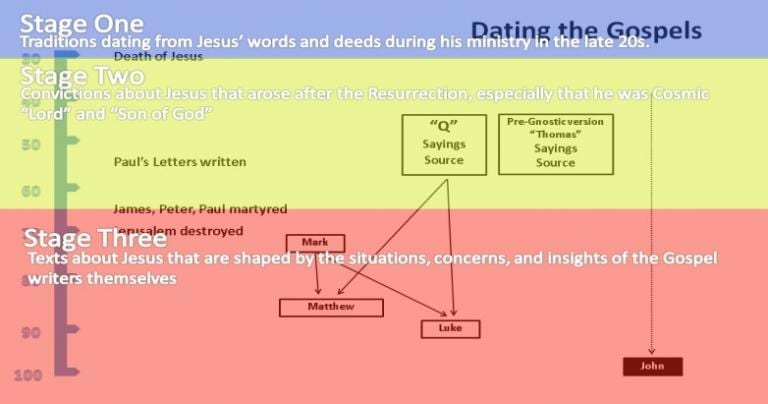
Early Jesus Groups, like the one to which both “Matthew” and “Luke” belonged, simply did not understand Jesus’ parables adequately. “Matthew” and “Luke” were socially distant from the Galilee of Jesus, removed from peasant life there. He was therefore unfamiliar. But these anonymous and elite Hellene Israelite scribes gave their very best to pass on the words of Jesus.
The same thing applies to the salt, light, and earth-ovens. My previous posts here, and here, and here have tried to present Jesus’ own understanding of the realities, Stage One of Gospel Formation, in a culturally-plausible manner.
Various Objections
Some have reacted to the interpretations seen in my previous post by saying that, as far as chemistry goes, salt cannot be a catalyst. Salt burns quite hot, 800 C. That’s about 1472 F. I am no chemist, admittedly, and I appreciate this feedback. Two things are important here: the first, what is key is how ancient Israelite peasants associated salt as being a fire-starting catalyst rather than what it actually is according to chemistry. But also this other point, we have this from John Pilch—
“Since the first appearance of this information, however, scientifically minded Western readers have challenged the interpretation, because, according to their scientific understanding, a catalyst never loses its ability as a catalyst. None of these objectors appears to have traveled to the Middle East to witness this practice in an earthen oven, or have attempted an experiment to prove or disprove the practice. In this article I would like to revisit the interpretation proposed by Bruce Malina (“The New Testament World: Insights from Cultural Anthropology”, 3rd edn., 2001), Malina and Rohrbaugh (“Social Science Commentary on the Synoptic Gospels”, 2nd edn., 2003) and myself (“The Cultural Dictionary of the Bible,” 1999) with a view to expanding what we have previously published.”
Objection Two: the Book of Job Nails It!
Another objection is proof-texting Job 6:6—
Can anything insipid be eaten without salt? Is there flavor in the white of an egg?
To that we must ask, is the author of Job 6:6 a sufficient sample of the experience of all Israelites at all times, including Jesus? Often people attempt to employ proof-texts as a kind of dynamite knockout punch to complicated understandings, but when addressed fail like all proof-texts do. Indeed, a proof-text without context is a pretext. We must ask—what was the socio-economic status of the author of Job? Was his elite situation in the fifth century universal to all Israelites of his time and the future? Take care with insufficient samples.
Mary of Nazareth could never have been a Proverbs 31 woman. The woman described in that Proverb comes from the elites, a tiny fraction of the total population whose life was alien to the situation of Galilean peasant women. But do a Google search of the many American Christian women aspiring to be such a woman.
Objection Three: This Source Seems to Nail It!
More sophisticated dynamite-knockout attempts appeal to so-called competent resources that speak of Romans and other ancient Mediterraneans using salt at table. It is true these Mediterraneans did. But did Galilean peasants?
Answer? No, not to the best knowledge we have. Despite our ethnocentric fantasies, as explained before, given the scarcity of water and effects on thirst salt has, village peasants did not use salt as a seasoning. Sorry Augustine, Jerome, Hillary of Poitiers, John Chrysostom, Chromatius of Aquileia, Cyril of Alexandria, Remigius of Rome, and many others! None of you are helping us get the Galilean peasant context of salt, light, and the earth-oven.
What about Magdala and Salt Processing Fish?
Does that mean that nowhere in Galilee did first century Israelites use salt other than in their ovens? I never said that. Certainly healthy fish exports were going on in Magdala and other Galilean centers, but these primarily served the tastes of elites. To imagine Jesus and his mostly peasant audience going to these centers as would we to the local supermarket is grossly anachronistic and ethnocentric.
And fish processing in Magdala does not tell us the diet of Galilean pleasantry all over. That we may determine through other means. It also does not illustrate for us peasant kinship economics and available ways to purchase food (were these people consumers like us? Or were they, in addition to being consumers, producers?) Are we to imagine that there were any restaurants or supermarkets in Galilee? Inns were detested dirty places—a point often missed by Americans reading the Parable of the Good Samaritan (see video below)!
Also our devotional imagery impacts even the most brilliant scholars sometimes into imagining that Jesus’ setting had the abundance of 19th century western world, or even the 20th and 21st century superabundance.
Abundance Even Unknown to Evangelists
A fellow writer, a brilliant and kind theologian to his own right, upon reading my last post, linked me to “The Food and Feasts of Jesus: Inside the World of First-Century Fare, with Menus and Recipes.” I love my brother and am his student in many, many things… but what an anachronistic mess this book is. Culturally ignorant speculations galore fill its pages. When it does give insights, they come by way of the ancients elites, who, again, come from the world of writing.
This is a cookbook of recipes, attempts at recreating, through much speculation, what elites ate, But confusedly calling the book, “The Food and Feasts of Jesus!” only pools ignorance. Feasts of Jesus the malnourished?
Consider Galilean peasants and their diet. Do you think really that the poor and starving of any age get their story told? Do you think Mary and Jesus enjoyed similar recipes to gourmet fish sauces from this cookbook? If I were to find you an ancient Roman recipe of snails that have gorged on rotten meat enjoyed by elites in Rome, am I to jump, via the flawed logic of my otherwise brilliant friend, to the notion that Jesus’ audience must have also? I hope no one thinks that this speculative cookbook really represents an authentic diet from starving peasants from first century Galilee. It’s insulting.
Admittedly this is a complicated issue. My friend knows better, but what he is doing here is not unlike what fundamentalists do with Catholics finding proof-texts, flinging them like dynamite ripped out of their contexts, hoping to blow something up. Or doing Dan Brown does from the Da Vinci Code books, taking crumbs of facts and jumping to conclusions and generalizing about all Israelites.
Salted Food Needs LOTS of Water!
Then he cites another work, “Eat and be Satisfied: A Social History of Jewish Food.” This book mentions something everyone who has cooked Baccalà will tell you, “before cooking [and then later eating] the fish it was necessary to soak them thoroughly.” One ought to ask: how much usable fresh water was available in Nazareth in order to accomplish such culinary prep-work? Or in most Galilean villages? Did they have such a water surplus to do this? How about their plumbing and running water?
When a Hasmonean dynasty king in the first century BCE delights in such salted fish delicacies, does his socio-economic status and elite urban tastes reflect Galilean commoners or the vast majority of Israelites? To think that would be absurd, but also common among theologians, it seems.
Not too long ago—and even these days!—it was common to think of Jesus as a trilingual Greco-Roman sophisticate attending theaters. Writers, whether of New Testament, Talmudic, or other Mediterranean literature—write from their own experience. And as far as the world of the Bible goes, literacy was no more than two percent of the total population. That’s one of the reasons that, so often, the Evangelists don’t GET Jesus’ sayings. It’s because those sayings had left Syro-Palestine some time before. It’s a much wider separation of the privilege we see today among elites when considering the lives of the poor. But our social strata are far more proximate to the marginalized than in Herodian Palestine. Literacy was controlled in Palestine, the lowest rate in all of the Roman world.
The Gourmet Tastes of Evangelists and Jesus
“Crossing Galilee: Architectures of Contact in the Occupied Land of Jesus” cites how Kinneseret exported a gourmet fish sauce (salty). Tell me—did Jesus enjoy that? Could he afford that? Would he even desire that? Though the book claims to bring clarity to Matthew 5:13, how can it? How does salt as flavor or preservative link up logically a light source? But salty fires in an oven do. A village oven on a hill could be the light to the whole agrarian surround.
There are other objections, some which anachronistically speak of “industry” and “local economies” boosted by exporting salted fish. As we have covered before, economy in the ancient world did not exist as a separate social institution, but was always embedded into either the polis or kinship.
Because elite powers controlled the polis, they dominated the flow and distribution of goods (especially goods for luxury, temple and warfare) like salted fish delicacies (a luxury food for elites). So Jesus knew political economy as well. Ancient economics were thus either that of the state (taxes and redistribution) or family (gifts and sharing).
What Jesus and his peers would never know would be economic systems in our 21st century sense. First century Mediterranean societies never speak about market, monetary systems, or fiscal theory. Just as they wouldn’t associate salt primarily with flavoring or preserving things.
Understanding Metaphor and Deriving Meaning
What does it take to form a symbol? How do metaphors work? How does language derive its meaning? From social systems. Those work in many ways basically the same throughout the ancient Mediterranean world, but there are regional differences. Jesus’ use of salt throughout the Synoptics refers to fire. Not fish. Not Leviticus and priests. Not the table or kitchens we are familiar with.
What were the common seasonings used? Cumin, zatar, dill, capers, mint and many more, but not salt. Again where you use salt in food you need water. Apparently there was not enough water to observe all of the requisite purity ablutions (Mark 7:1–5). But don’t sweat it because somehow they had enough for their version of Baccalà?? Jesus and his peers lived in tame desert conditions with water precious and limited. Despite what the elite writes in Job 6:6, flavoring their foods with salt would intentionally induce thirst, no?
The Cultural Context of Salt, Earth, and Light
Here are a few quotes from the Context Group of Biblical scholars, world-leading experts on the cultural world of Jesus. John Pilch writes in the Preface section of his “A Cultural Handbook to the Bible”:
“From 1993 to 2006, I wrote a bimonthly article in The Bible Today (Collegeville, MN: The Liturgical Press) under the heading ‘A Window into the Biblical World.’ The aim of these articles was to show how insights from Middle Eastern culture drawn from the social sciences (Cultural Anthropology, Middle Eastern Anthropology, Medical Anthropology, and others) helped to situate the Bible in its proper cultural context. For example, the ‘salt’ statements of Jesus recorded in the Gospels (Matthew 5:13; Mark 9:49-50; Luke 12:49; 14:34-35) have nothing to do with seasoning or preserving foods. Rather, they reflect the use of salt in the Middle East to facilitate the burning of the common fuel—camel and donkey dung—in the ovens. The articles that appeared from 1993 to 1997 were published in The Cultural Dictionary of the Bible (Liturgical Press, 1999). In 2000 this book won an award from the Catholic Press Association and was subsequently translated into Italian (Il Sapore della Parola, Áncora, 2001) and Polish (SOownik Kultury Biblijnej, Edycja kw. PawOa, 2004).”
More from Pilch on Salt
Then, in that same book, on page 39, in an essay on SWAMPS AND LIFE (from a Biblical perspective), Pilch writes:
“In his description of the restoration of Judah, Ezekiel (47:1-12) describes a life-giving river that flows from the sanctuary and brings life (trees on the banks, fish in the water) to the desolate wilderness of Judah and turns the Dead Sea into a body of fresh water. However, swamps and marshes will not become fresh (v. 11). Commentators interpret this as indicative of divine benevolence providing SALT for humankind. In a culture which did not know the advantages and disadvantages of salt as a seasoning, this is a question able interpretation. Moreover, in a country where water is scarce it is implausible that people would deliberately stimulate thirst that could not be quenched. On the other hand, remembering that salt is a key ingredient of ancient fuel (camel and donkey dung) and has the ability to sustain fires, the salt may well be intended for use in the burnt-offering sacrifices in the restored temple, which is what Ezekiel 40–48 describes. Salt was one ingredient in concocting the incense for use in the temple (Exodus 30:35).”
Also see Pilch’s “Cultural Dictionary of the Bible,” pp 4-7. He goes into further detail there as to salt, its range of meaning, and usefulness in the Middle Eastern setting of Jesus.
Admitting the Salty Processing at Magdala
Pilch, together with fellow Context scholars Bruce Malina and Richard Rohrbaugh, do admit that salt was used by different peoples at different times nearby the Dead Sea and ancient Sodom as a seasoning and to preserve meats, but not by peasants in the Galilee of Jesus’ day as seasoning or preserving fish in the home. Fish processing at places by the Sea of Galilee such as Magdala was part of a government-regulated activity since 300 BCE involving fishing, preparing, and distribution. Here these scholars admit to salt being used. This was primarily an export business. Don’t imagine that fishermen themselves were eating the processed export primarily.
Eating of fish became more popular in the decades following 300 BCE throughout Syro-Palestine. That does not mean the gourmet products were ready staples in Galilean diets. More grasshoppers crossed Jesus and Mary’s mouths than ever fish did. Meat of any kind was scarce. If you are a fishermen, like those belonging to the Jonah-Zebedee fishing syndicate, would you need processed salted fish when you could have it fresh? Also you suffered under heavy tolls. How much of Peter’s catch stayed with his household?
By the way, fishing, like herding, was a despised occupation. Fishermen in first century Galilee were landless Israelites struggling to survive. The idea of Peter and Andrew at the head of a thriving industry on the Galilee are nonsense from 19th century times of abundance.
More Cultural Context on the Evangelists and Jesus
In their Social-science Commentary on the Synoptic Gospels (p. 41), Malina and Rohrbaugh give the following note on Matthew 5:13 from this Sunday’s Gospel:
“The ‘earth’ is an outdoor, earthen oven (Job 28:5; Psalm 12:6) found near the house. The ideal householder had a house fronted by a walled courtyard that contained (1) an earthen oven with (2) a double stove, (3) a millstone for grinding, (4) a dung heap, along with (5) chickens and (6) cattle (m. Baba Bathra 3,5). The earthen oven used the dung as fuel. The dung heap was salted, and salt plates were used as a catalyst to make the dung burn. Salt loses its saltiness when the exhausted plates no longer serve to facilitate burning. Unlike Matthew, Luke specifies that salt without saltiness is ‘fit neither for the earth nor the dunghill; men throw it away’ (Luke 14:34-35).”
Elsewhere, over dinner, the late John Pilch explained to me personally that a tiny hamlet like Nazareth had only one such earthen oven, just as it had only one bath. See more here:
Beyond the Evangelists to Jesus the Troublemaker
So let’s return to Jesus by way of seeing more clearly what he was getting at—
“You are the fire-starter for the earth-oven. But if you can’t start fires, what good are you? You should be thrown out with the sh-tty ash! You are the light of the earth-oven!”
—that meaning fits the culturally plausible Jesus.
The Church fathers, East, West, Syriac try their best, but they don’t really get this. Even the Evangelists don’t completely get this. There is a taming of Jesus afoot, and it’s been active since the earliest times.
What is discipleship about? Be seen pissing people off, shaking things up, challenging the status quo. Isn’t that what Jesus did? Not devotional Jesus, the Sweet One of whom the Romans would laugh at but never crucify. No. This is the real deal Jesus, Middle Eastern troublemaker. And his disciples must do the same!
Discipleship and Fiery Salt
How are disciples of Jesus to be salt for the earth-oven? It is to start fires and make things burn up, my friends. Doing that, disciples become “light of the earth.” How brilliant! The prepaschal Jesus taught imaginatively and cleverly. Fire and light are profoundly related to the Mediterranean cultural values of honor and shame. It’s agonistic culture. Combative, argumentative exchanges are daily and relished by members of that society. Imagine Nazareth on the hill, and its solitary outdoor oven being the one light seen from the agrarian surround.
The prepaschal Jesus who shook his world up and was crucified for it gives a lot to think about when it comes to being prophetic Christians. But Constantinian Christians prefer salt as flavoring to entice others, and they like salt as preservative to preserve the culture. We can be Christians-within-culture so long as we don’t lose the costly grace of being Prophetic Christians.
